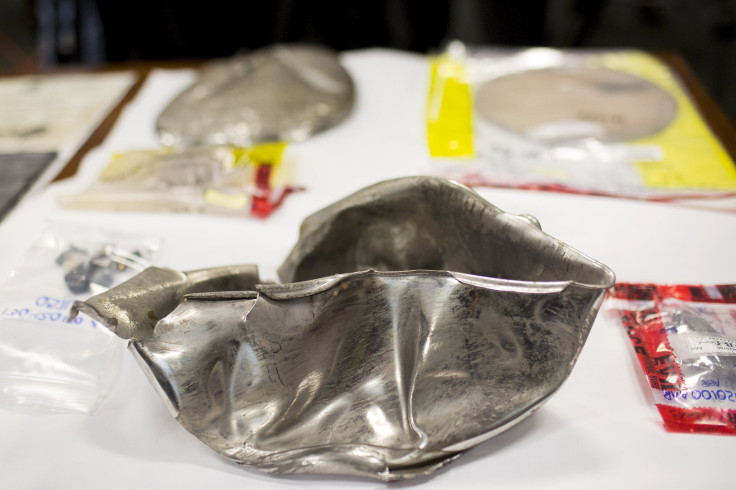Boston Bomb Suspect Influenced By Al Qaeda: Expert Witness

BOSTON (Reuters) - Boston Marathon bombing suspect Dzhokhar Tsarnaev was heavily influenced by al Qaeda literature and lectures, some of which was found on his laptop, a counterterrorism expert testified at his trial on Monday.
The testimony cut to the heart one of America's most closely watched court battles, with prosecutors painting Tsarnaev as a home-grown terrorist and his defense arguing he was a mostly normal American kid who came under the influence of his radical older brother.
Matthew Levitt, a senior fellow at the Washington Institute for Near East Studies, said some of Tsarnaev’s Twitter posts and parts of a note he scrawled inside a drydocked boat where he was captured several days after the deadly marathon attack resembled Islamist publications.
"We see in them (concepts from) al-Awlaki’s statements and other writings from the radicalizers," Levitt said, referring to Anwar al-Awlaki, a U.S.-born Al Qaeda figure who published lectures and a glossy English-language magazine about violent jihad found on Tsarnaev’s computer.
Awlaki was killed in a U.S. drone strike in 2011.
Levitt added that the marathon bombing appeared to fit into a broader "global jihad movement" that encourages Muslims to commit violence targeting the United States.
Tsarnaev is accused of killing three people and injuring 264 with a pair of homemade pressure-cooker bombs at the race's crowded finish line on April 15, 2013, and with fatally shooting a police officer three days later as he and his 26-year-old brother, Tamerlan, tried to flee the city.
Tamerlan Tsarnaev died following a gunfight with police later that night and Dzhokhar was arrested, severely wounded by gunfire, after a homeowner in the suburb of Watertown found him hiding in a boat in his backyard. He left a note in that boat suggesting that the attacks were an act of retribution for U.S. military campaigns in Muslim-dominated countries and that he viewed his brother as a martyr.
"We Muslims are one body you hurt one you hurt us all," the message read, citing what it said was aggression in Muslim lands. "I don’t like killing innocent people it is forbidden in Islam, but due to said (...) it is allowed," the message read, with a word missing due to a bullet hole.
Defense attorneys have admitted that the 21-year-old defendant committed the crimes he is accused of, but are trying to save his life in the capital case by arguing that his brother masterminded the attacks.
FBI computer specialist Kevin Swindon testified earlier that copies of al Qaeda's "Inspire" magazine were found on Tsarnaev's laptop, including one with an article titled: "How to Make a Bomb in the Kitchen of Your Mom." It also included several audio files of Awlaki lectures, he said.
Swindon said the laptop also had backup files of Tsarnaev's iPhone that showed he texted a friend, Dias Kadyrbayev, shortly after the attack, saying: "U saw the news?... Better not text me my friend."
Defense attorney William Fick grilled Swindon in cross-examination in an attempt to point out that it was unclear where the files on Tsarnaev's computer originated, and that there was a chance that some were placed there by Tamerlan or others.
Fick asked Swindon about a thumb drive investigators had found at a landfill along with other items belonging to Dzhokhar, which contained files on how to make explosives: “Isn’t it true that every file and folder on this drive was created by Tamerlan’s computer?”
“I don’t know,” Swindon replied.
Separately, a poll released on Monday found that more Boston-area residents would prefer to see Tsarnaev sentenced to life in prison without the possibility of parole rather than death. Some 49 percent of respondents to a poll conducted for WBUR radio by MassInc Polling said they preferred a life sentence, with 38 percent wanting to see a death sentence.
The bombing killed restaurant manager Krystle Campbell, 29, graduate student Lingzi Lu, 23, and 8-year-old Martin Richard. Massachusetts Institute of Technology police officer Sean Collier, 27, was shot dead three days later.
© Copyright Thomson Reuters 2024. All rights reserved.





















